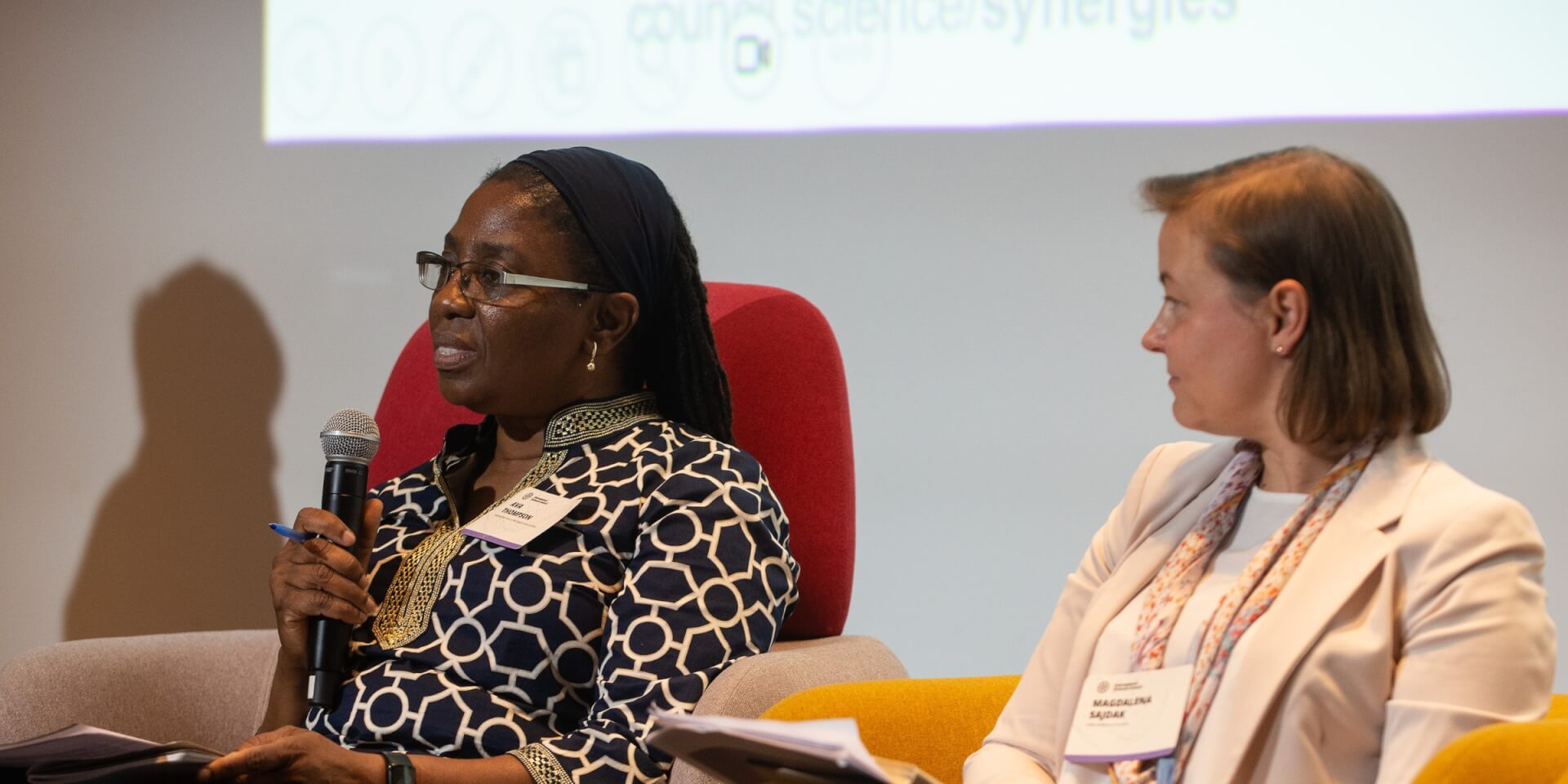
“The power of the global scientific community to affect change should not be understated,” says Jean-Christophe Mauduit, an expert in science diplomacy and lecturer at University College London.
In the “Science Diplomacy and Science in a Time of Crisis” session ISC members looked at how science and the ISC can work for diplomacy amidst unprecedented, interconnected challenges, including climate change, economic and political instability, intense nationalism and armed conflict – all in the aftermath of a historic health crisis.
In the face of these challenges, the “soft power” of science has the power to reshape global diplomacy, argues Mauduit, quoting Nobel Prize-winning chemist Ahmed Zewail.
Science diplomacy can be a tool to help countries engage across a political divide. Mauduit notes the example of the Pugwash Conferences – international meetings between global scientists which kept a line of communication open between the U.S. and the Soviet Union during the Cold War and helped develop frameworks for international treaties on weapons of mass destruction.
Case study: Ukraine
The global science community’s response to the war in Ukraine is another example of “Track II diplomacy” – science as a form of parallel diplomacy, where global science resources are mobilised to resolve conflict, explains Mathieu Denis, Senior Director of the new ISC Centre for Science Futures.
In 2020, the ISC partnered with the InterAcademy Partnership and the World Academy of Sciences to coordinate a global response to support scientists displaced by conflict, including the Syrian civil war – the Science in Exile initiative. The network was mobilised again when the Taliban took over Afghanistan in 2021, and in February 2022 in response to the war in Ukraine. That’s when the project “took on a different dimension,” Denis says.
In such cases, the ISC does not expel member organization – but rather mobilize its resources to safeguard scientific collaboration, preserve science systems, and support refugee and displaced scientists. The ISC convened a biweekly call with international organizations working with refugee and displaced scientists, to share information, strategize and avoid duplication of work. This led to a June 2022 meeting, where scientists from around the world met to solidify a seven-point action plan to support scientists caught up in crises.
One of the key outcomes of those meetings was maintaining open communication between people working on the same problem – a valuable diplomatic effort by itself, Denis explains. But the work also led to a long-term, practical policy change to help scientists in conflict areas: global academic publishing industry organization, STM, said it would abolish fees for Ukrainian institutions, and for scientists in other conflict areas going forward. “There is a role for all of us. We can all act and do something in our organizations,” Denis says.
Groundwork laid during the Syrian crisis was crucial to later work on Ukraine, he explains. By developing a playbook and a global network of experts, and keeping track of what works and what needs to be changed for next time, the international science community can respond quickly and more efficiently to the next crises.
Learning from the Ukraine crisis
The Polish Academy of Sciences has been a key player in global efforts to keep Ukrainian scientists safe and ensure the continuity of their work. Magdalena Sajdak, Director of the Polish Academy of Sciences Scientific Center in Paris, told Members about the Academy’s grants, programs and other efforts, which have helped hundreds of displaced scientists.
Throughout this work, Sajdak says the Polish Academy has had another major priority: preventing a brain drain of Ukrainian scientists that would hinder post-war recovery. In a conflict situation, one country’s loss is often another’s gain, as highly skilled scientists flee their home country and pick up their work elsewhere.
Encouraging voluntary repatriation of scientists, when it becomes safe to return, is one of the ISC Science in Exile recommendations – a vital part of ensuring countries can maintain thriving national scientific systems and meet sustainable development goals. This was also a priority noted in a 2022 joint declaration signed by the ALLEA European Federation of Academies of Sciences and Humanities and other national academies, which listed maintaining institutional affiliations for displaced scientists as its top recommendation to achieve this goal.
“After the war, who is going to teach at the universities?” Sajdak asks. That’s why the Polish Academy’s recent call for grant applications from war-affected Ukrainian researchers emphasised that Ukrainian recipients will be able to maintain their affiliations at home institutions while working in Poland – a small step that could have major implications for Ukraine’s future.
How a more inclusive scientific landscape benefits everyone
When taking on these problems, it’s important for the global scientific community to draw on knowledge from regions that have experience dealing with conflict and uncertainty, recommends Ava Thompson, Secretary General of the International Union of Psychological Science, who spoke at the ISC Meeting in Paris.
“We appreciate the new global consciousness that is marked by polycrises and associated challenges – but we approach it using lessons from Small Island Developing States, and other majority world contexts, where this feature of life is unfortunately normative,” explains Thompson, who is also the Founding President of the Caribbean Alliance of National Psychological Associations.
Scientists from these areas are “typically on the periphery of the scientific, geopolitical, and economic landscapes,” she notes – even though these states are often an “early and reliable bellwether” for trends that concern the whole world, like climate change.
“Maximising scientific diplomacy requires decentering our gaze from traditional and contemporary centres, to create a more inclusive scientific landscape,” Thompson says.
Image by Jason Gardner.